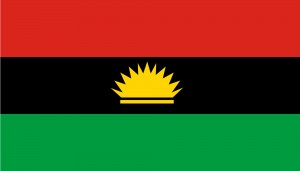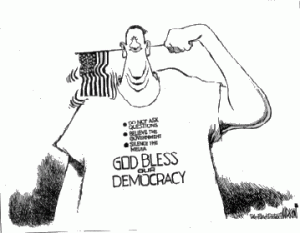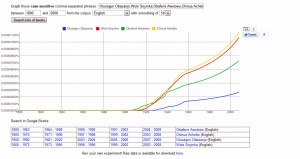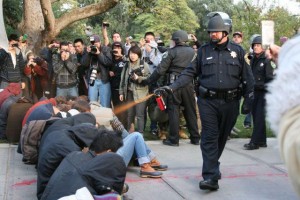Saturday evening found me in a bar downtown Edwardsville for a quick drink. One particular conversation with a mere acquaintance present there with a few other friends eventually turned to discussion about careers, mine, and about what I would like to be doing as soon as I’m done with a Master’s degree. It then returned to him and what he was doing at the moment. He’s studying to be a health scientist and he would one day love to work on the African continent. “I would have gone to Ghana in the summer,” he said, “but I didn’t have the money”. “Great,” I replied. “I know a program called the Global Health Corps which sponsors interested health workers/scholars from the United States to parts of Africa in order to make a difference doing what they love. It’s fully funded, and it’s perhaps precisely what you need. As a matter of fact, my fiance lives in Uganda at the moment because of this program.” He was immediately enthusiastic for one second, and then stopped. “I can’t go to Uganda, Kola. They’d hang me there.”
It took me about two seconds, and then I got it. He is gay. This was my first time of hearing this admission directly from him. He was apparently already familiar with the laws in many states on the continent today demonizing that kind of difference. I recovered from my double-take and tried to assure him. “You’re a foreigner. Foreigners are usually more protected especially when they’re volunteering… Maybe your presence in local communities saving lives will be enough to help change minds… Or maybe you don’t have to wear the tag on your forehead…” No, he said. He doesn’t have anything to hide and would never live where he is forced to deny who he is. The conversation went on for a little while more with me asking a few more questions I’d always wanted to know from a self-declared homosexual: How long has he known? Has he ever kissed a girl and loved it? Has he ever had sex with a girl? etc It was surprisingly an open conversation without any awkward moments where the young man opened up with his fears, hope, dreams and pain at the kind of society that demonizes difference. I expressed my empathy to him, just a few seconds before I informed him that he wouldn’t be able to live in Nigeria either.
A few days ago, last week, a new law was passed by Nigeria’s Senators penalizing “homosexual activity” for up to 14 years in jail, and up to 10 years for those who support, conduct or witness homosexual marriages and association. Many things make this law stupid, but this makes it curiously draconian: there has never been a clamour for homosexual union/marriage in Nigeria. If anything, the derisive societal attitude has been previously enough to keep those with same-sex attraction in the closet. Societal acceptance – if it ever happened – would have been a very big leap forward. Many pundits have already written about this, and the conversation about the scourge of this state-sanctioned intolerance has already taken centre stage in the media, which is good. Looking through the various arguments put forward by citizen for the support of this legislative measure has however convinced me of the long way that society still need to go to overcome intolerance.
Back to America, at around the same day, Congresswoman Michelle Bachman of the United States House of Representatives was telling a group of voters that she has no problems with homosexuals or lesbians getting married, as long as they get married to people of the opposite sex. Read it here. Here is the summary then: If you live in Nigeria or in the US as a gay person, you risk being criminalized except you get married – to the people you are not attracted to. If you live in Uganda, there’s one step further, you may be brutally murdered by a mob of intolerant activists (as was the case of the human right activist David Kato). There is much more to say about the hypocrisy of these expressions of sadistic intolerance, but I will end this post here – a minor contribution to the dialogue. There are a lot more we can do to bring peace to the world than spending time demonizing other people because they are different from us. A lot more things we can do with our conscientious energy.





